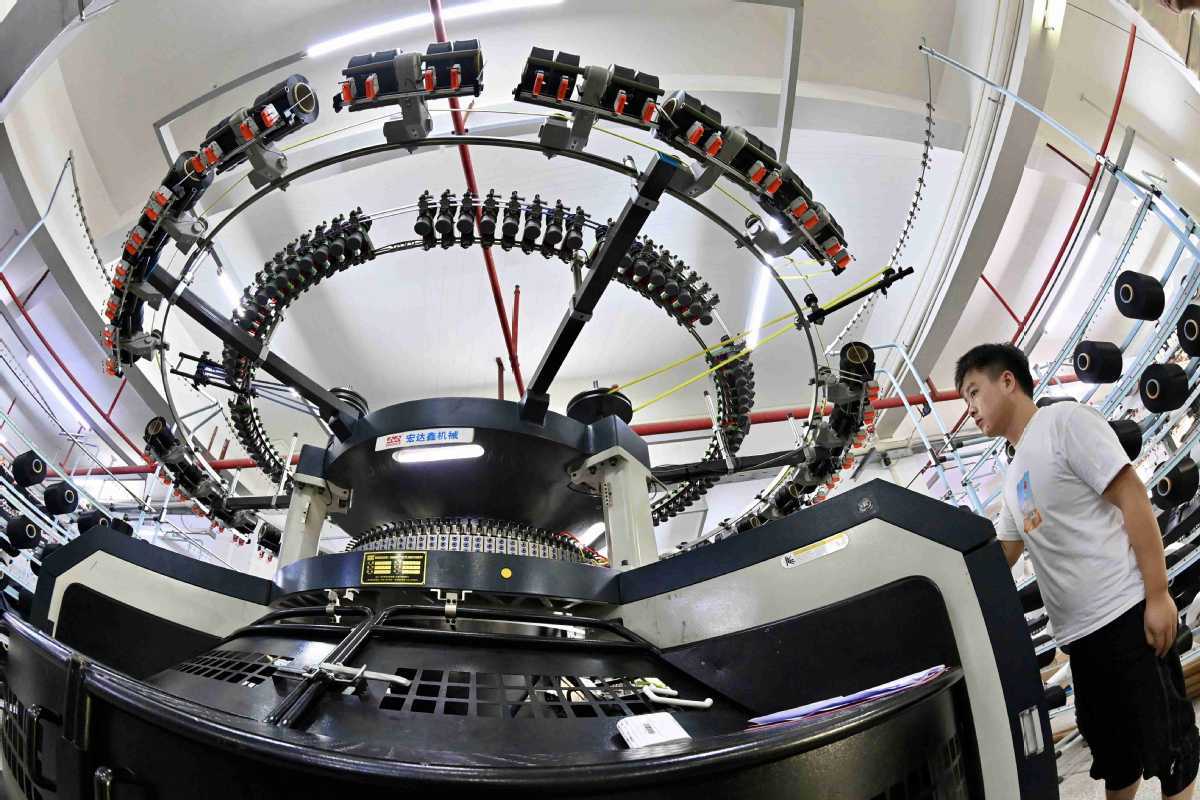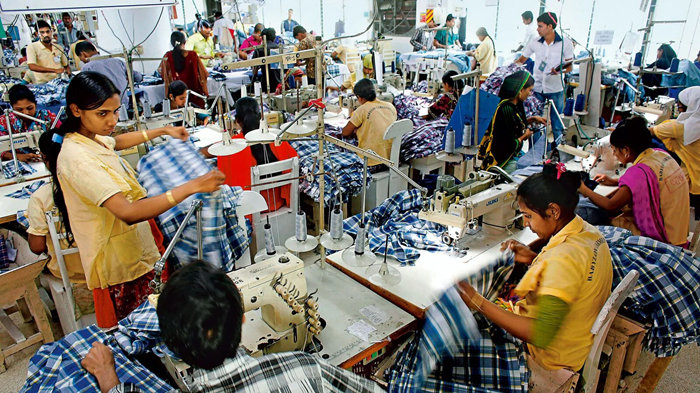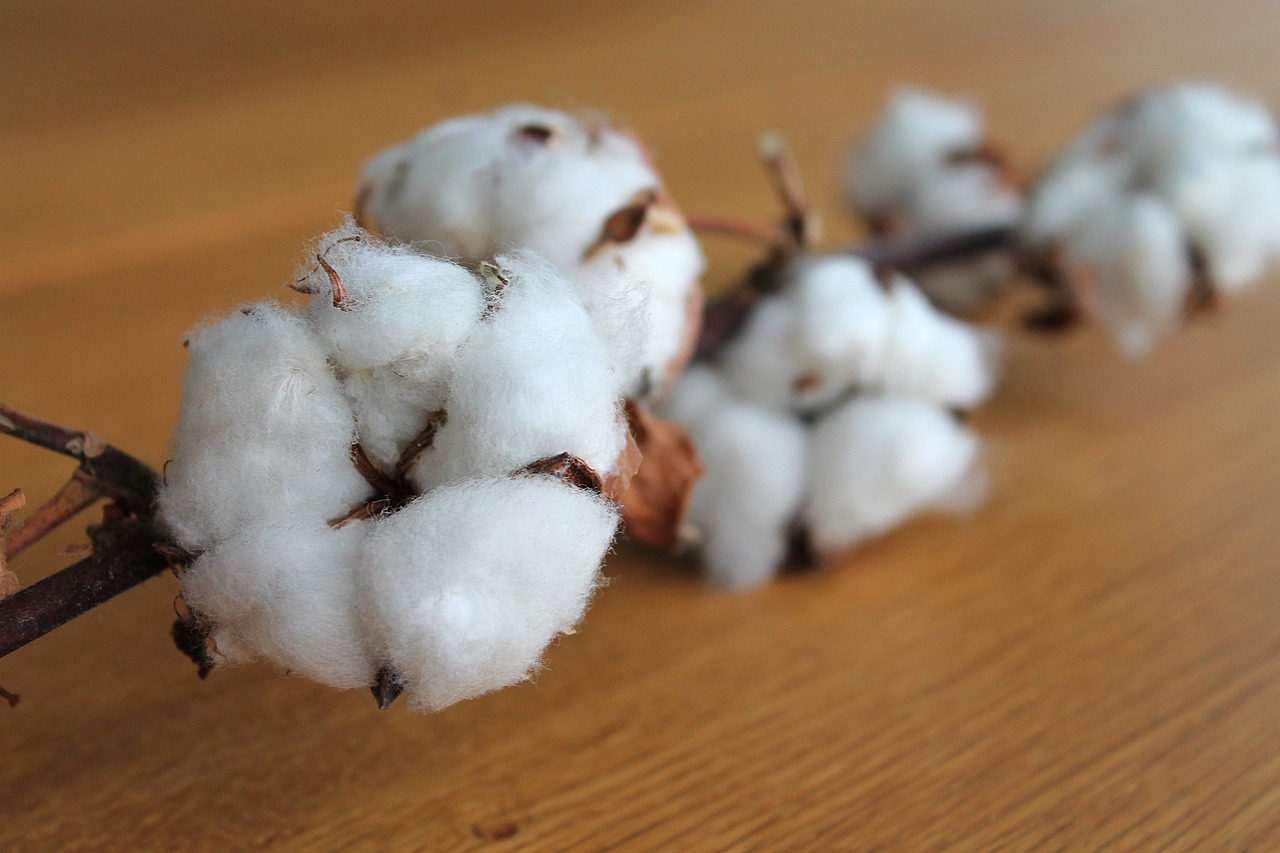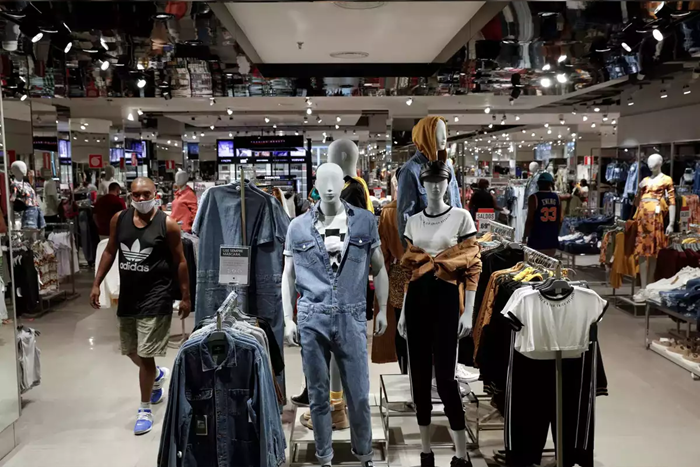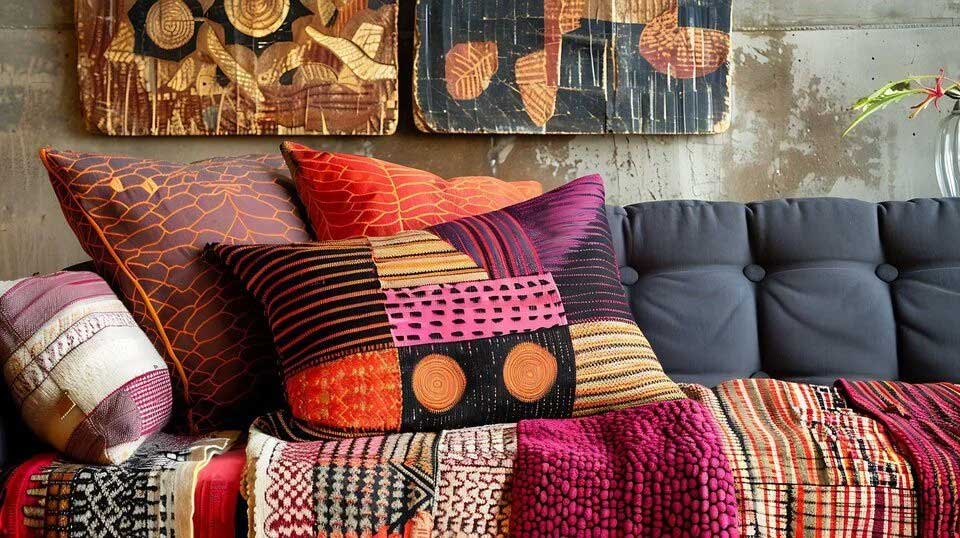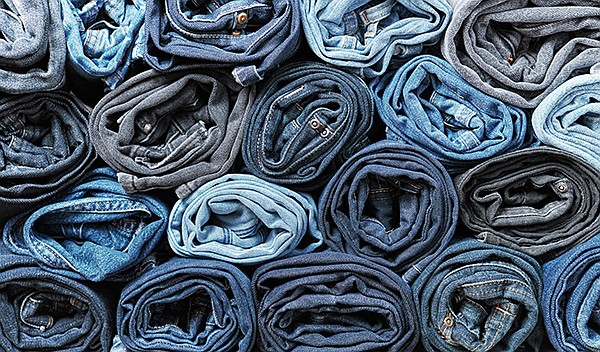FW
Germany is coming up with a textile certificate to bring the country's clothing industry within the minimum social and ecological standards. The certificate shall be introduced within this year. Germany's neighbors France and the Netherlands have already enacted such a step.
As it is Germany has several laws in place. All textiles manufactured, imported and sold in Germany must bear a label indicating their raw material composition. Textiles may only be sold if they possess the appropriate specification of the fiber contents, care and washing instructions as well as size in metric measurements.
Even though care labeling symbols are not mandatory in Germany, the National Association for Textile Care Labelling has defined an internationally recognized care labeling system for textiles based on trademark symbols. These care symbols provide traders, consumers and companies with the correct information about taking care of textile products.
Manufacturers and importers of textiles containing potentially dangerous chemicals must register these substances with the European Chemicals Agency and ensure the appropriate communication along the supply chain. The most widely used and recognized certificate of quality for textiles in Germany and the EU is the Oeko-Tex Standard 100. This voluntary certificate provides the textile and clothing industry a uniform standard for consumers who specifically aim to buy textiles that are free of harmful substances. All raw materials, intermediate and end products at all stages of production are tested and certified for compliance with the standard.
Organised for the first time under the PV Manufacturing umbrella, following Première Vision’s acquisition of the show last September, the Made in France exhibition this year saw 99 exhibitors (up 8 per cent from April 2013) and an exhibition area that is almost 15 per cent bigger compared to last year. Première Vision, has introduced a new look to the event, which would now be called Made in France Premiere Vision.
Made in France has also launched its own online magazine in French and English to explore the richness of French high-end manufacturing, its culture, regions, sectors and the people behind the industry – brands, manufacturers and organisations. The magazine will publish two articles a week having profiles, analysis and illustrations highlighting the best examples of Made in France initiatives by the show’s exhibitors and visitors.
Made in France 2014 to be held from April 9 to 10 in Paris is devoted to high-end apparel and accessories manufacturing. The event would be showcasing French high-end manufacturing expertise, skills, craftsmanship and industrial techniques. The 12th edition of Made in France will bring together a handpicked selection of around 100 specialist companies from garment manufacturers to weavers, including those awarded with the French government’s Entreprises du Patrimoine Vivant (‘Living Heritage Company’) quality label for luxury ready-to-wear and accessories.
The exhibition is a platform for fashion designers and heads of collections on the lookout for textiles and fabrics, manufacturing solutions and related services for high-end and luxury apparel and fashion accessories.
www.salonmadeinfrance.com
C&A, currently the largest buyer of organic cotton is going all out to boost the fiber. Demand for organic cotton is exceeding supply but global production of organic cotton has declined. Measured against global production of cotton, the share of organic cotton today is only one per cent. After worldwide production of organic cotton continuously rose in 2011, crop yields subsequently sank by 8 per cent in the following years. The reason: lack of knowledge about organic cultivation methods; poor cooperation between communities.
For C&A Europe, which has been dedicated to promoting organic cotton production for the last 10 years, counteracting this step backwards is a priority. It publishes brochures which explain the added value and current challenges of organic cotton production, and show opportunities for all those in the global supply chain.
C&A sold over 100 million products made from organic cotton in fiscal year 2013. The share of organic cotton against the total cotton collection is 38 per cent. All cotton in C&A products labeled with Bio Cotton is 100 per cent certified organic cotton -- never blended. Nearly 75 per cent of the processed organic cotton, which is cultivated without the use of pesticides and artificial fertilizers, comes from farm projects supported by the C&A Foundation, around 60,000 farmers in India benefit from these projects.
www.c-and-a.com/
The IAF and the OECD will work together on the practical implementation of due diligence principles for the apparel industry, culminating into a conference on the subject in September.
On March 31, the IAF was invited at a ministerial meeting of the Dutch Trade and Development Minister, Lilianne Ploumen, with her French counterpart, Minister Nicole Bricq in Paris. Both ministers called for an international partnership for corporate responsibility. Also present at the meeting was Secretary General Gurria of the OECD. The OECD’s Guidelines for responsible business are central to the international approach envisioned by the Dutch and French ministers.
Through its global responsibility action plan, IAF will work towards creating a harmonized global framework for dealing with labour conditions and sustainability in the apparel industry. Potentially this framework could be the ‘due diligence’ principle, which features centrally in the UN’s Ruggie Guiding Principles and in the OECD’s guidelines.
The seventh Techtextil Russia 2014 took place March 11 to 13, 2014, Moscow. Techtextil Russia is an international trade fair for technical textiles, nonwovens and protective clothing. It brings together technologies for the whole technical textile value chain: raw materials like yarns and fibers, technical textiles and textile technology for every sector of the industry.
This year, 180 companies from 20 countries presented their products, technologies and services to fair visitors. Among the participants were companies from Austria, Belgium, China, Czech Republic, France, Germany, Great Britain, Greece, Italy, Russia, South Korea, Switzerland, Taiwan and Turkey. National and international speakers gave presentations about new chemical protective fabrics, nonwoven materials with a wide range of applications and other materials with specific properties.
Manufacturers from Belgium, China, Czech Republic, France, Germany, Italy and Portugal were present within the national pavilions. The event is not only an exhibition aimed at business, it is also an extensive educational platform which is supported by industry specialists who share their experience, discuss the main challenges and milestones of the field and find proper qualified solutions.
The next Techtextil event in Russia-Techtextil Russia Symposium, will be held from April 16 to 17, 2015 in Moscow.
https://www.messefrankfurt.com/frankfurt/.../techtextil-russia2014.html
ITMA, the European edition of the International Textile Machinery and Garment Exhibition will partner WTiN World Textile Information Network to enforce technological innovation in the technical textiles and nonwovens sectors and become the main sponsor of the Future Material Awards. The awards will be presented at a gala dinner on November 26, 2014, after the 8th Aachen-Dresden International Textile Conference.
WTiN, publisher of international technical textile magazine, Future Materials, launched the awards to recognise success in textile innovation and celebrate the essential work of the many businesses which support the industry.
The ITMA Future Materials Awards are open to all end-use sectors for technical textiles and materials experts, product developers and designers. The awards will comprise of 21 categories, including the best innovations in sportswear, protective textiles, industrial textiles and medical textiles.
There will be also be awards for groundbreaking partnership development, best start-up company and a lifetime achievement award. The jury will consist of renowned industry experts, including Linda Keppinger, Global Materials Director at Nike; Jean-Pierre Haug, Secretary General of Oeko-Tex; Peter Dinsdale, World President of the Textile Institute; Michael Sieber, Research Textile Engineer at the US Army Natick Soldier Systems Centre; Siegfried Winkelbeiner, CEO of Schoeller Textil; Thomas White, Textile Innovation Director at Under Armour, and Lutz Walter, Head of R&D and Innovation of EURATEX.
Entries for the awards are open till July 15, 2014 and the finalists will be announced by mid-September.
www.wtin.com
Citing demand for setting up of minimum wage limit from the major garment brands and labor unions, the Ministry of Labour and the International Labor Organization (ILO) have joined hands to reform the current system of setting the minimum wage in the garment sector, in the coming months. The reform process will begin with a public seminar to be held on April 24 and 25, which will mark the first tripartite meeting between the government, factory owners and union leaders.
Though the workers threatened to boycott work through a nationwide strike demanding $160 dollars monthly wage following Khmer New Year, the Labor Ministry had taken no initiative to restart negotiations over the minimum wage. Now it will work with the ILO to reform the minimum wage setting system, however it is not considering an immediate revision of the monthly wage.
Last month, 30 international garment brands wrote to Deputy Prime Minister Keat Chhon calling for a more inclusive process for setting the minimum wage. The Labor Advisory Committee (LAC), tasked with setting the minimum wage, has come under intense criticism from workers’ unions for failing represent workers.
Despite a government-backed study conducted last year that estimated a living wage for garment workers at more than 155 dollars, the LAC on December 24 settled on a 95 dollars minimum wage, which was later raised to 100 dollars on December 31, 2013.
Textile mills in Pakistan feel their cost of doing business is much higher than that of their regional competitors, like India, Bangladesh, Vietnam and Sri Lanka. Therefore the All-Pakistan Textile Mills Association (APTMA) has urged the government to make the costs of the export-oriented industry compatible with these countries'.
APTMA points out that the cost of doing business in Pakistan has increased so much that it has reached an alarming level making the country’s products uncompetitive in the global market. An important component of total business is the cost related to socio-economic environment in which the business operates. Due to the inefficient and unfriendly socio-economic environment, the cost of operating business in Pakistan is considerably higher. Consequently, Pakistani businesses are at a disadvantage. The main factors of high cost of business in Pakistan are raw material, utilities, finance, human resource, technology, infrastructure and supporting institutions.
Electricity and gas tariff and the discount rate in Pakistan are much higher than in other countries in the region. The per unit electricity tariff in Pakistan is $0.17 while it is $0.13 in India, $0.09 in Bangladesh and Sri Lanka and $0.073 in Vietnam.
www.aptma.org.pk/
Leading flat knitting machine manufacturer Stoll will present limited edition CMS ADF-3 next generation flat knitting machine at ITMA Asia + CITME 2014 in Shanghai to be held from June 16 to 20, 2014. The CMS ADF-3 is a multi gauge machine. It can knit a fully fashioned cheerleader dress with plated stripes and skirt part with selective plated motifs. Intarsia areas are connected with ornamental seams. It will also illustrate widening and stitch darning using counter yarn carrier movement and skirt-body transition with stitch doubling.
The CMS 830 C can knit a fully fashion intarsia slipover in striped 2x2 rib tuck stitch structure. The CMS 530 HP multi gauge is a highly productive machine in compact size. On this machine Stoll will show a striped Fully Fashion raglan pullover in college style in rice grain tuck stitch structure with sleeve intarsia logo. Stripes and logo are in three color jacquard tubular-tuck stitch structure. Cuffs are in full cardigan rack stitch.
Stoll will also present some software developments relevant to the knitting process. In addition, Stoll will also show its proprietary patternshop. With the Stoll patternshop it is now possible for those who are not Stoll clients to obtain the patterns of a particular trend collection as well as numerous other patterns.
www.stoll.com/
Workers at factories in Cambodia that produce clothing for the likes of Adidas, Nike and Puma are reportedly routinely faint due to exhaustion. More than 100 garment workers have reportedly fainted in two separate factories. Lacking access to nutritious, sanitary food, workers are highly susceptible to toxic fumes, dehydration and all the other poor conditions that they regularly encounter, which can easily tip them over the edge.
These sportswear brands are blamed for wages that currently do not satisfy basic needs or provide for a life with human dignity. Garment manufacturers say the faintings are not caused by malnourishment, toxic fumes, unsanitary food, poor working conditions or dehydration. They argue workers are looking for an early start to the Khmer New Year holiday, which runs from April 14 to 16. They say that when garment workers see one person faint they all follow suit because they don’t want to work.
Mass faintings are common in Cambodia, which has become an important manufacturing centre for many high street fashion brands. Garment manufacturing earns Cambodia more than $5 billion a year in revenue and employs some 6,00,000 people, many of them breadwinners for impoverished families in the countryside.
Garment makers have often complained of poor ventilation, strong chemicals and use of potent glue for footwear.


